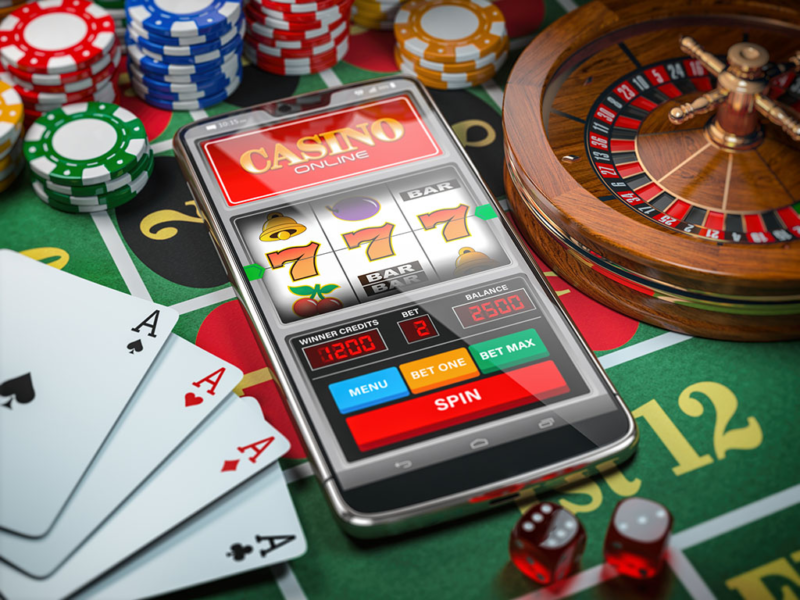In the glittering, high-stakes world of casinos, the flashing lights and the sound of spinning reels create an intoxicating atmosphere that lures millions into their embrace. But beneath the surface of this vibrant realm lies a question that has fascinated players and scholars alike: Is it truly all luck, or do skill and strategy play a role in the proverbial game of chance? While many might argue that the roll of the dice or the turn of a card is purely a matter of fate, others find solace in the belief that knowledge and skill can tilt the odds in their favor.
From the novice gambler who places a hopeful wager on a slot machine to the seasoned player who meticulously calculates every decision at the poker table, the narrative of success is woven with threads of randomness, intuition, and perhaps, a dash of destiny. This exploration delves into the intricate dance between luck and skill, examining how chance operates in casino gambling and what it truly means for those who dare to play.
Introduction to Chance in Gambling

In the dazzling world of casino gambling, chance reigns supreme, weaving an intricate tapestry of luck, strategy, and unpredictability. From the spinning roulette wheel to the shuffle of cards in blackjack, every moment is charged with a potential twist that can lead to glory or despair.
The allure of the unknown drives players to the tables, where hopes are pinned on the fickle nature of fate. Yet, beneath the surface, chance operates not just as a mere game of luck but as a complex interplay of probabilities, odds, and psychological factors.
Understanding this multifaceted role of chance is essential; it shapes not only the gaming experience but also the very essence of gambling itself. What might seem like a straightforward roll of the dice often morphs into a captivating dance of strategy, intuition, and serendipity, each influencing the outcome in ways both seen and unseen.
Understanding Luck: A Psychological Perspective

Understanding luck from a psychological perspective reveals the intricate dance between cognition and chance, a phenomenon deeply rooted in human behavior. Often, individuals attribute their wins or losses to luck, folding a seemingly capricious force into the narrative of their gambling experience.
This reliance on luck can provide a comforting explanation for unpredictable outcomes, allowing players to bypass the often harsh reality of the odds stacked against them. Yet, the psychology of luck is layered; cognitive biases like the illusion of control can lead gamblers to believe that their skills or strategies influence what is fundamentally random.
Moreover, our brains are wired to seek patterns, making it all too easy to overlook the role of chance in favor of self-constructed stories of fate. Thus, within the vibrant chaos of casino gambling, understanding luck may not be just about external random forces, but also about the internal landscapes of beliefs and perceptions that shape how we engage with uncertainty.
The Randomness of Casino Games: Odds and Probabilities

The world of casino games is a fascinating interplay of chance, strategy, and, undeniably, the cold calculations of odds and probabilities. Each spin of the roulette wheel, each flip of a card, and every roll of the dice embodies a mosaic of outcomes, some more favorable than others.
Players often assume that luck reigns supreme, yet beneath the surface lies a labyrinth of mathematical principles that dictate the likelihood of various results. For instance, the odds of hitting a blackjack differ significantly from those of winning on a slot machine, where myriad symbols dance in a chaotic sequence, yet all governed by the same relentless law of probability.
The thrill comes not just from winning, but from embracing the unpredictable nature of these games—a rollercoaster ride of hope and despair, where each wager carries with it the essence of uncertainty and the tantalizing pull of possibility.
Conclusion
In conclusion, while luck undeniably plays a pivotal role in casino gambling, the intricate interplay of strategy, psychology, and game mechanics cannot be overlooked. Players must navigate the unpredictable nature of chance while leveraging their understanding of odds and probability to enhance their gaming experience.
Ultimately, responsible gambling practices and informed decision-making can help mitigate the risks associated with chance. For those looking to further explore the dynamics of casino games and improve their knowledge, resources like https://spy-casino.com/ can provide valuable insights into the world of gambling. Embracing both the thrill of possibility and the reality of risk can lead to a more balanced approach to gaming, where the excitement of chance is paired with a sense of awareness and control.


